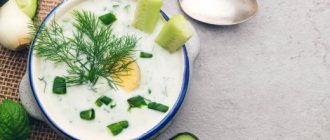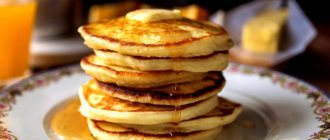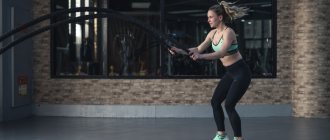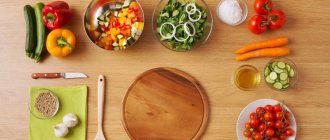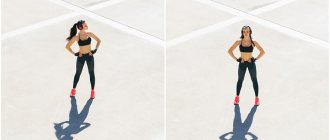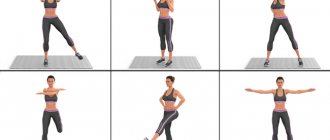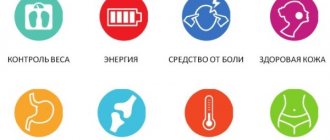It is very important to have a good breakfast before your morning workout. Without fuel, you won't be able to start your car. Likewise, if you don't energize your body, you won't be able to get it to work hard after eight-plus hours of sleep.
There are several factors to consider when choosing a pre-workout breakfast. We will talk about this in this article. You'll learn how to best organize your morning routine and increase productivity.
Breakfast before training - yes or no?
Does it ever happen that you don’t feel like eating before a workout? Some people have no appetite . Diet and fitness experts' advice goes like this: Unless you're hungry early in the morning and have energy, you shouldn't force yourself to eat before working out. Although, experts still recommend eating breakfast before training . But if you feel tired in the morning, you need to choose the right diet . [1]
Basic rules for eating before exercise
- It is not advisable to train on an empty stomach. Food before training should be easily digestible, consisting mainly of complex carbohydrates and proteins (proteins).
- Before class, you should not eat too fatty foods, fast food and sweet confectionery (cakes, chocolate, cookies, buns).
- It is recommended to eat 1.5 - 2 hours before class. Eating later will cause reflux of food contents, nausea, and decreased performance during training.
- Do not forget about the drinking regime: an hour before the start of the lesson you need to drink 300-400 g of clean still water.
These are the general recommendations of pre-workout nutrition experts. Now let’s look at them in more detail, taking into account various factors and individual characteristics.
What to eat before training?
When choosing an early breakfast, it's important to think about how much time you'll have to spend eating . In general, you should eat at least 90 minutes before your workout. But, if you get up very early, then you probably don't want to get up another 90 minutes earlier just to eat. This isn't a problem, as there are plenty of quick-digesting breakfasts you can eat without having to get up even earlier. [1]
The choice of pre-workout food also depends on the type of workout . Low-intensity training does not require as big a breakfast as strength training. Workouts such as cardio (running, cycling, swimming) and strength training or high-repetition exercises such as gymnastics or martial arts require sufficient energy in the form of food. If you don't have the energy, your body will respond slowly or you will feel more tired. It's even possible that you won't have the strength to train as long or as usual. [2]
The body needs nutrients and a source of energy. If you don't have much time for your body to digest food, simply try to reduce the amount of food you regularly consume. For example, if you are used to eating Greek yogurt with banana and nut butter, then just eat Greek yogurt before your morning workout. In the following lines you will learn what a proper breakfast should look like .
Menu ideas
With all that said, your diet should still include all three macronutrients—protein, fat, and carbohydrates. To obtain energy, muscles mainly use carbohydrates, so this group of foods cannot be excluded from the diet. We offer you several breakfast ideas below, from less calorie to more nutritious. The choice depends on the type of training you plan and the time you have at your disposal.
A complete meal
(two or more hours before training):
- Whole grain toast with peanut butter and banana slices. A little honey;
- Omelette of two eggs with vegetables. Garnish: potatoes. Orange slices;
- Overnight oatmeal - overnight oats topped with yogurt or milk, topped with chia seeds and frozen berries (plus peanut or almond butter).
Light breakfast (an hour or two before training):
- Whole grain tortilla with scrambled eggs and grated cheese;
- Yogurt with granola and diced apple, sprinkled with cinnamon;
- English muffin with jam.
Snack before workout
(one hour or less before training):
- A bag of applesauce (yes, for kids - they're easy to take with you!);
- Banana;
- Half a protein/energy bar;
- Pre-workout mixture mixed with water and fruit juice, taken in equal proportions.
Additional Notes
Start drinking water as soon as you wake up. Based on research, scientists recommend drinking about 300 ml of water within half an hour after exercise.1 Drinking too much water immediately before exercise can cause some discomfort, while too little can lead to cramps.
Is it possible to drink coffee or tea before training? This question is more a matter of personal preference. Some people don't need caffeine during exercise, others may need it to get them started. If you take caffeine before training, pay attention to the amount - don't overdo it.
Conclusion
One of the most important factors influencing your morning workout routine is breakfast. We are all different, so it may take some trial and error before you choose the right menu for you. Take some time to plan the type, intensity, and timing of your workout. Knowing all this in advance, you can establish an optimal daily routine for yourself.
Translation: Farida Seidova
Articles on our website are presented for educational and informational purposes only. We do not recommend using article materials as medical advice. If you decide to take dietary supplements or make fundamental changes to your diet, first consult with a specialist.
The perfect breakfast before your morning workout
Guessing the right portion for breakfast can be a challenge. If you eat too much , you will feel it during your workout. On the other hand, if you eat too little , you'll compromise your performance and won't be able to train to your full potential. [3] So, what should your pre-workout breakfast include?
Squirrels
Proteins are most important Why? Three hours after eating a protein-rich meal, the body experiences a negative protein balance . This means that the catabolism process starts after 8 hours of sleep. Prevention of this process is simple. Simply consume protein along with BCAA amino acids, which directly stimulate muscle building and accelerate muscle regeneration.
[3] Any source of protein is suitable , such as egg whites, chicken breast or Greek yogurt. If you want something lighter and easier to digest , choose whey protein or BCAA to minimize the risk of stomach problems during workouts. Regardless of your protein source, however, be sure to take in at least 2-3 grams of leucine. Leucine is an essential amino acid that is part of BCAA and is responsible for the growth of muscle mass. [4]
Carbohydrates
Carbohydrates are the main source of energy for muscles, so they should not be left out of your pre-workout breakfast. Carbohydrates actually break down into glucose , which is where your muscles and brain get energy.
Carbohydrates that the body does not immediately use as energy are stored in the liver or muscles as glycogen.
Liver glycogen is depleted at night because it is used by the brain and central nervous system to maintain basic body functions during sleep. Therefore, it is important to replenish your energy reserves in the morning . Glycogen in the liver is the main source of energy even during low-intensity training. [5]
But be careful, carbohydrates tend to be tricky . Starting workouts without them can lead to premature fatigue and decreased performance. On the other hand, if you eat too much or the wrong type of carbohydrates, you can slow down and harm your results .
To maximize available energy and minimize stomach problems during exercise, choose low-fiber foods that contain instant carbohydrates. Rice cakes, dried fruits or bananas are suitable. Try mixing protein or BCAA with dextrose and drinking this drink during your workout.
Avoid foods high in fat
You're likely short on time , so high-fat foods aren't a good choice. Fats slow down digestion and therefore their consumption should be postponed until later.
Therefore, experts recommend adhering to the following ratio of individual nutrients . The deciding factors are the timing of your meal before exercise and the type of workout .[2]
In the morning before cardio training, it is advisable to consume[2]:
- 30 minutes before training – 30 grams of carbohydrates, minimum protein
- 60 minutes before training – 60 – 70 g carbohydrates, 5 – 10 g protein
- 120 minutes before training – 120 – 140 g carbohydrates, 15 – 25 g protein
Before strength training or weight training in the morning, we recommend eating at least 60 minutes before hitting the gym, 30-40g of carbohydrates and 10-20g of protein . [2] What does this look like in practice?
Post-workout nutrition
You followed the recommendations, had a proper snack before classes, and actively completed the set of exercises prescribed by the trainer, aimed at maximum fat burning.
If you worked, you deserve a reward. But remember that the prizes should not be from the field of gastronomic pleasures.
Important! The processes of burning subcutaneous fat, started during fitness, continue to occur in the body for another two hours after its completion.
Understanding this feature of the body allows you to enhance the effect of weight loss if desired.
In this context, there are two directions on how to eat:
- do not eat at all and wait for the “golden” two hours;
- eat immediately after leaving the gym, taking advantage of another “trick” of the body - the carbohydrate window.
Let's take a closer look at both of them.
Two hours of abstinence
What do they give? Losing kilograms. You only drink water, but fat continues to break down. If the goal is to lose as much as possible, the method is good.
There is a nuance here - the quality of the body suffers. The fat disappears, but the muscles do not strengthen, and as a result, the shape is lost.
Attention! Girls who are not concerned about the quality of their muscles and the general condition of their body after losing weight can afford to go hungry after fitness.
They are most likely a minority, but they exist, so it is necessary to say this.
Eat right away
The rest, who are concerned about what will happen to muscle tone and figure after getting rid of fat, need to eat (but not overeat). Do this right away, while a special window called “carbohydrate” is open, when all the food consumed is used for restoration and is not stored in fat reserves. Even in the evening, after the gym, it is better to have a small snack in order to eat fewer calories than you burn.
But even in this case, what you eat is important.
What can you eat to lose weight
The best option is to eat carbohydrates after a workout for weight loss, consuming them liquid in the form of juices, cranberry fruit drinks, and grapes.
Calculation – 1 g of “coal” per 1 kg of weight (ideal for you)
You will get from a glass of juice:
- grape – 38 g;
- cranberry – 31 g.
Other foods that are rich in carbohydrates but low in fats are also acceptable:
- rice, preferably unpeeled;
- potatoes, but not fried;
- durum wheat pasta;
- grain bread, bran;
- vegetables;
- fruits;
- sugar, honey, jam, etc.
You need to “throw” a portion of protein into the body after exercise. Again remember a modest appetite, healthy cooking.
How much protein should you eat? The norm is palm. Bend it like a boat and mentally fill it:
- boiled whites (preferably without yolks);
- chicken or turkey breast;
- steamed fish or shrimp, etc.
How much fits is your standard portion.
What not to eat while losing weight
Main restrictions:
- fat;
- alcohol;
- caffeine.
When the goal is to lose weight, the listed “harmful” three must be completely abandoned, otherwise a noticeable result will be difficult to achieve.
Fat slows down the absorption of proteins and carbohydrates, which prevents muscle mass gain.
Alcohol supplies empty calories, increasing appetite, lowering the bar for reasonable satiety.
Caffeine retains glycogen in the stomach, which the liver and muscles wait for to recover faster.
Therefore, after evening exercises, forget about:
- coffee;
- cocoa;
- tea;
- chocolate and products with its addition.
Correct drinking regime
Be sure to drink, especially if you are interested in burning more fat. During active exercise, you sweat, losing moisture, and dehydration occurs quite quickly.
Note. The body's loss of only 2% of moisture without timely replenishment leads to lethargy, reducing the effectiveness of the workout.
You need to drink without waiting until you feel thirsty. It may not be felt, since under increased loads the receptors signaling the need to give the body water reduce sensitivity.
So drink according to the required time:
- before entering the hall - a glass of liquid;
- in the hall - every 15-20 minutes. take a few sips;
- after leaving the hall - a glass of liquid.
What drink?
- ordinary water without gas;
- freshly squeezed juices diluted half with water;
- sports drinks to prevent dehydration.
It is better to prepare juices yourself, as we know for sure that there is no sugar in the drink. Don't trust the marketing claims on juice boxes that you are looking at a 100% sweetener-free product. In most cases this is a scam.
Pre-morning workout supplements
Nutritional supplements are a quick source of nutrients. Their advantage is that they replenish important nutrients . In addition, they can be consumed on the way to your morning workout. They will save you time which you can use to sleep.
Stimulants , such as caffeine or caffeinated green tea, can also give you energy in the morning. Because caffeine can improve both performance and strength , it also relieves fatigue and stimulates fat burning. [9] [10] It can be found in tablet form, tea, coffee, or in RTD drinks and pre-workout supplements. Find out how you can optimize your workouts with caffeine here.
Beta-alanine is also a suitable pre-workout supplement. It is an amino acid that improves performance and endurance, especially during high-intensity exercise. At the same time, it relieves fatigue and increases the supply of carnosine in the muscles. [11] [12] [13] Find out more about the use of beta-alanine in sports in our article.
What foods are contraindicated before exercise?
Fast food
Before training, we need food high in carbohydrates and proteins. But hamburgers and fries don't really fit in here.
Firstly, fast food contains a lot of saturated fats, which will take the body at least 4 hours to digest.
Secondly, McDonald's food contains a lot of sodium, an excess of which upsets the balance of fluids in the body. And this can affect performance during training.
Thirdly, carbohydrates in fast food are mostly fast and have a high glycemic index. This means your blood sugar levels will rise quickly and you won't get the energy you need during exercise.
Milk products
Milk contains protein, carbohydrates and fats and takes a long time to digest. This is why dairy products are mainly used as a means of post-workout recovery.
Sweet drinks
Most lemonades contain many artificial sweeteners, which increase blood sugar levels and do not provide the necessary energy supply for training.
Alcohol
Alcohol dehydrates, disrupts balance, and distorts decision-making processes. Drinking a bottle of beer before training is not the best solution.
Spicy food
Spicy foods, especially in large quantities, can cause heartburn and muscle cramps.
How much food should you eat before training?
The amount of food needed before training is purely individual. But it should give a person just enough energy so that he can endure the workout in good health. Of course, it should be taken into account that this food should not interfere with exercise: an excessive amount of food will put additional stress on the cardiovascular system and make it difficult to breathe at the usual rate. For example, 150–350g of oatmeal will be enough.
To burn fat
The method of eating when you need to build muscle and get rid of subcutaneous fat is called “cutting”. Usually used before competitions.
What to eat before training to burn fat? To effectively remove subcutaneous fat and reveal muscle relief, it is necessary to change the diet, increasing the proportion of proteins and reducing the amount of carbohydrates. With such a diet, the athlete does not need to lose weight, and he cannot stop gaining weight. Protein is processed slowly, the body spends more energy on this, muscle building occurs at the expense of protein. If you have a morning workout, you should eat carbohydrates at breakfast. For example:
- Oatmeal, egg whites, vegetables;
- Fish, rice, vegetables.
When conducting classes in the evening, carbohydrates should be removed at breakfast.
How many hours before the start of classes can I eat?
As mentioned above, eating should be done at least 1.5-2 hours before the start of the workout. In some cases, when an athlete's metabolism is slow, food should be taken 3 hours before the start of training. In any case, before starting your workout you should feel light and your stomach should not be full. Otherwise, all the blood in the body will accumulate in the stomach area, and energy will be spent on digesting food, and the body’s resources will simply not be enough for effective physical activity.
Digestion time of food
The question of how long before training you should eat is closely related to the time it takes for food to be digested in the body.
The food we prepare for consumption cannot be digested unchanged. In order for food to be digested and used for construction needs and energy costs, the body needs to spend a sufficient amount of time and effort. With the help of the digestion process, the human body is able to obtain building protein from amino acids of digested food, fat from fatty acids and glycerol, and the body transforms glucose into energy and stores it in the liver in the form of glycogen.
Digestion of food in the human body occurs under the influence of many factors. The chemical composition of the food consumed, the type and duration of cooking, the amount eaten, diet, state of the gastrointestinal tract - all this affects the degree of digestibility and time of digestion of food.
© nenetus — depositphotos.com
The influence of heat treatment on the digestibility of products
So, how does heat treatment of food affect the rate at which it is absorbed by the body? Here's some important information for you:
- The digestibility of protein increases significantly when it is heated, as partial destruction of the structures of the protein molecule occurs (denaturation), which in turn leads to better breakdown of proteins by gastric enzymes.
- When animal fat is heated, its energy value is partially lost as it is rendered out of the product. When cooking fatty meat, more than 45% of the fat goes into the broth.
- Vegetable fat also undergoes chemical changes when heated. When deep-frying foods, thermal oxidation of vegetable oil occurs, and toxic compounds settle on the surface of the fried food.
- Heat treatment of potatoes helps convert the protopectin contained in it into a more digestible form - pectin. Excessive acidity can interfere with this process, so sauerkraut or other acidic product should be added to the soup after the potatoes have already been cooked.
- Raw starch cannot be absorbed by the body at all, so potatoes and Jerusalem artichokes must be subjected to heat treatment.
- Sucrose, contained in fruits and berries, is converted into glucose and fructose under the influence of temperature and acids.
Digestion time for main foods
To make it easier for you to decide which foods and how long before training you can eat, use the table below. It indicates the time it takes for the human stomach to digest certain types of food.
| Product | Digestion time |
| Water | Enters the intestines instantly |
| Fruit and vegetable juices | 10-15 minutes |
| Vegetable broth | 10-15 minutes |
| Fruits and berries that contain a lot of water | About 20 minutes |
| Grapes, orange, grapefruit | 30 minutes |
| Vegetables and salads without adding oil | 35-40 minutes |
| Apples, pears, peaches, bananas | 40 minutes |
| Cabbage, zucchini, corn | 45 minutes |
| Eggs | 45-60 minutes |
| Vegetable salads dressed with oil | 55-60 minutes |
| Fish | 60 minutes |
| Starchy vegetables: potatoes, Jerusalem artichoke | 90-120 minutes |
| Cereal porridges: rice, buckwheat, millet and others | 120 minutes |
| Legumes | 120 minutes |
| Dairy and fermented milk products | 120 minutes |
| Poultry: chicken, turkey | 2.5-3 hours |
| Pumpkin and sunflower seeds | 3 hours |
| Nuts | 3 hours |
| Beef | 4 hours |
| Mutton | 4 hours |
| Pork | 5.5 – 6 hours |
Along with the digestion time of food, a significant factor is the degree of its digestibility. For example, food of animal origin (proteins and fats) is absorbed in the body by approximately 90%. Fiber and food of plant origin are absorbed by the body on average by 60%, if the food is mixed - by 80%.
Egg white is considered to be the standard for food digestibility. It is absorbed in the body by approximately 98%. The high degree of digestion of egg white can be explained by the fact that the egg itself is a single cell and there are no intercellular spaces or connections in its structure. The same cannot be said about meat, since in order to digest meat protein, the body requires additional enzymes to “break” and digest these intercellular connections.
Recipes for healthy eating
Curd cheese rolls with cucumber
- 2.5 g Protein
- 1.3 g Fat
- 4.4 g Carbohydrates
- 38.7 kcal
20-25 min.
- #bell pepper
- #vegetarian dish
- #dietary
- #breakfast
- #olives
- #low calorie
- #dinner
- #vegetables
- #cucumber
- #parsley
- #holiday dish
- #dinner
Other recipes
Protect your muscles with protein
If you leave the door in the morning without eating, you are training on an empty stomach. By doing so, you are missing out on the opportunity to protect precious muscle mass from significant breakdown.
About three hours after eating a protein-rich meal, the body returns to a negative protein balance. Consequently, after eight hours of sleep, your body is in a state of severe catabolism. Avoiding extreme negative balance is quite simple: eat a protein meal before your workout. Amino acids (which protein is broken down into) directly stimulate muscle protein synthesis and are also involved in recovery and growth.
For weight gain
What to eat before training to gain weight? To speed up muscle gain, you need to gradually increase the amount of proteins and carbohydrates in your diet as the frequency and duration of your workouts in the gym increases. To gain muscle mass, the ratio of proteins to carbohydrates is 3:7. At breakfast, fat should be absent from the food, as it slows down metabolic processes and the rate of absorption of nutrients.
The set of products for weight gain does not differ from the composition of a regular breakfast. The main thing is to get enough calories. To increase muscle mass, you need to steam foods so that fat is not present in the food. Half an hour before class, eat an apple or pear and drink a protein shake to generate energy during your workout.
What to eat before training
Snacking before a workout often confuses beginning athletes. What can you eat to get the necessary boost of energy, a surge of strength and not feel heaviness in your stomach? There are several options for healthy and tasty snacks that contain the BJU composition necessary for high-quality exercise, have a minimum amount of calories and promote weight loss.
Cottage cheese
Try eating cottage cheese before training along with your favorite berries, fruits or honey. Such a fermented milk product will saturate the body with the necessary amount of protein, and the fruit will help restore glycogen in muscle fibers. The deficiency of these substances is especially relevant after training, when their reserves have been wasted, so nuts with fruits and dried fruits can be consumed as a light snack before and after sports.
Nuts
Any nuts before training should be eaten carefully, because in addition to protein, they also contain a lot of fat. If you decide to make a nut snack, dilute it with dried fruits: this way you will reduce fats and increase the amount of carbohydrates, and also enrich your body with phosphorus and zinc. Please note that the nuts must be in their pure form, without chocolate glaze, powdered sugar and sesame seeds. Such supplements will prevent you from losing weight.
Eggs
Try eating eggs as a pre-workout snack. This product is the richest supplier of protein to the human body, therefore it is useful both before and after sports activities. Many athletes drink raw eggs, considering this method effective in building muscles, but this is not entirely true, and boiled egg whites are absorbed better.
Oatmeal
Many people believe that eating a serving of oatmeal will give them an energy boost for the day. Athletes know that oatmeal before training, especially strength training, is an excellent carbohydrate snack. By adding a small handful of nuts and 1 tablespoon of any berries to boiled porridge, you will understand that a snack before sports can be healthy and tasty at the same time.
Apple
It is believed that the best time to eat an apple before a workout is before lunch. This opinion is due to the fact that the fruit contains fructose, which can turn into fatty deposits if you eat apples at night or in large quantities. These fruits enrich our body with iron, fiber, pectin, vitamin C, the permissible norm is 1 red or 2-3 green apples per day.
Or maybe not eat at all?
Some novice athletes try not to eat anything at all before training, believing that this will help them lose excess weight faster. However, this approach is incorrect and sometimes even dangerous to health. Insufficient amounts of nutrients in the body can cause dizziness, drowsiness, and nausea. With general weakness, concentration also decreases, and this, in turn, increases the likelihood of injury. In addition, due to severe hunger, you will not be able to enjoy the workout itself, but it will be beneficial and can only become a good habit if it is enjoyable.
Eating too much food shortly before class is also not the best solution. Apart from the obvious reason that it is difficult to do any aerobic exercise with a full stomach, the body will be lethargic and sleepy because all the energy will be spent on digestion.
To summarize : before training, it is advisable to eat in order to have enough energy and strength to perform the exercises. We will tell you more about the composition of dishes and suitable meal times below.
